Ontario Scientific Research and Experimental Development (SR&ED) Tax Credit Programs
Receive Retroactive Research Tax Credits on R&D Projects.
The Scientific Research and Experimental Development (SR&ED) tax credit program offers federal and provincial iterations, including three Ontario provincial variants that help to provide additional tax credits towards eligible innovative research and development projects. These programs are:
- Ontario Innovation Tax Credit (OITC)
- Ontario Business-Research Institute Tax Credit (OBRITC)
- Ontario Research and Development Tax Credit (ORDTC)
Funding Amount
Depending on the corporation’s circumstances, they may be eligible for one, two, or all three programs in addition to the federal SR&ED program:
OITC: Up to 8% refundable tax credit.
OBRITC: Up to 20% refundable tax credit.
ORDTC: Up to 3.5% non-refundable tax credit.
Eligible Applicants
All eligible applicants must be taxpayers with a permanent establishment in Ontario that also meet the following criteria:
OITC: Currently performing SR&ED approved activities in this province, subject to size tests.
OBRITC: Performing SR&ED with eligible research institutes (ERIs).
ORDTC: Business eligible for tax credits through the federal SR&ED program.
Eligible Activities
OITC: Covers all federal expenditures that are in respect of SR&ED activities performed in Ontario.
OBRITC: Contract with eligible research institutes (ERIs).
ORDTC: SR&ED activities performed in Ontario that are eligible for funding through the federal SR&ED program.
Program Deadlines
OITC: Available for all open tax years, contingent on filing a federal SR&ED claim within 18 months of year end.
OBRITC: Available for all open tax years, with no requirement to file a federal SR&ED claim.
ORDTC: SR&ED tax credits are available for all open tax years provided the federal claim for tax credits is filed within 18 months of their tax year’s end.
Ontario Scientific Research and Experimental Development (SR&ED)
Amount of Tax Credits
OITC and ORDTC follow the federal SR&ED rules for eligible expenses and activities, while OBRITC is for payments made to eligible research institutes (ERIs). The 8% OITC and 20% OBRITC are refundable tax credits, while the 3.5% ORDTC is non-refundable that can be applied towards Ontario taxes payable.
What is important for eligible businesses to know is that funding through these programs stack. Your businesses may be eligible for funding through all three programs for the same underlying expenditures. The programs are available for all open tax years, with OITC and ORDTC contingent on filing a federal SR&ED claim within 18 months of year end.
Ontario Innovation Tax Credit (OITC):
- Receive up to 8% refundable tax credits on a maximum annual expenditure limit of $3 million.
- The maximum tax credit amount is $240,000.
- The expenditure limit is gradually reduced if:
- Federal taxable income of the prior tax year exceeds $500,000 and is eliminated at $800,000; or
- The prior year’s taxable capital exceeds $25 million and is eliminated at $50 million.
- OITC is considered government assistance and will reduce the federal pool of deductible SR&ED expenditures and qualified SR&ED expenditures.
Ontario Business-Research Institute Tax Credit (OBRITC):
- Receive up to 20% refundable tax credit on qualified expenditures of up to $20 million annually.
- The maximum annual tax credit a business can receive is $4 million.
- OBRITC is considered government assistance and will reduce the federal pool of deductible SR&ED expenditures and qualified SR&ED expenditures.
Ontario Research and Development Tax Credit (ORDTC):
- Receive up to 3.5% non-refundable tax credit towards eligible activities.
- The ORDTC tax credit can only be used to reduce the Ontario corporate income tax payable.
- Any unused portion of the tax credit may be carried back three tax years and/or carried forward 20 tax years.
- ORDTC is considered government assistance and will reduce the federal pool of deductible SR&ED expenditures and qualified SR&ED expenditures.

Ontario Scientific Research and Experimental Development (SR&ED)
Eligible Applicants
These government tax credits are available to Ontario businesses. Many of the eligibility requirements for these programs require that the business is eligible for tax credits through the federal SR&ED funding program:
Ontario Innovation Tax Credit (OITC):
- Businesses operating either basic research, applied research, or experimental development in Ontario; and
- Applicants should be developing new products, processes, or making incremental improvements to them.
Ontario Business-Research Institute Tax Credit (OBRITC):
- Businesses (including partnerships) that that have contracted an eligible research institutes (ERIs) to perform SR&ED on their behalf.
Ontario Research and Development Tax Credit (ORDTC):
- Businesses (including partnerships) in Ontario engaged in either basic research, applied research, or experimental development; and
- Applications should involve the development of new products or improvements to existing products or processes.

Ontario Scientific Research and Experimental Development (SR&ED)
Eligible Expenditures
OITC and ORDTC follow the federal SR&ED rules for eligible expenses and activities, OBRITC is for payments made to eligible research institutes (ERIs). Many of the expenses shown here are eligible here are similar to the expenses that the business can get funded through the federal SR&ED funding program, and can be stacked with one or more of these provincial variations.
Ontario Innovation Tax Credit (OITC):
- Labour: Based on time spent on eligible activities in Ontario.
- Contractors: Portion of contract related to SR&ED performed on the business’ behalf. Must be a Canadian contractor and work must be performed within the province of Ontario.
- Third Party Payments: Payments (money or in-kind) to an entity to carry on SR&ED in the province of Ontario.
- Materials: Materials can be purchased from outside Ontario but must be used in the prosecution of SR&ED in Ontario.
- Overhead: Calculated using the Proxy (Quick) or Traditional (Detailed) method.
Ontario Business-Research Institute Tax Credit (OBRITC):
- Payments of money (not payments-in-kind) made to eligible research institutes (ERIs) where there is agreement between the corporation and the ERI to perform SR&ED on behalf of the corporation (labour and materials);
- Expenses must be related to a Canadian business or corporation and their activities taking place in Ontario; and
- The corporation must be entitled to exploit the results of the SR&ED carried out under the agreement.
Ontario Research and Development Tax Credit (ORDTC):
- Labour: Based on time spent on eligible activities in Ontario.
- Contractors: Portion of contract related to SR&ED performed on the business’ behalf. Must be a Canadian contractor and work must be performed in this province.
- Third Party Payments: Payments (money or in-kind) to an entity to carry on SR&ED in the province of Ontario.
- Materials: Materials can be purchased from Canadian or non-Canadian suppliers.
- Overhead: Calculated using the Proxy or Traditional method.

Ontario Scientific Research and Experimental Development (SR&ED)
Program Deadlines
The Ontario SR&ED programs are available for all open tax years, with OITC and ORDTC contingent on filing a federal SR&ED claim within 18 months of year end.
Ontario Innovation Tax Credit (OITC):
Available for all open tax years, contingent on filing a federal SR&ED claim within 18 months of year end.
Ontario Business-Research Institute Tax Credit (OBRITC):
Available for all open tax years, with no requirement to file a federal SR&ED claim.
Ontario Research and Development Tax Credit (ORDTC):
Available for all open tax years, contingent on filing a federal SR&ED claim within 18 months of year end.
To determine whether your business is eligible for benefitting through the Scientific Research and Experimental Development (SR&ED) tax credits, consider speaking with the Mentor Works team of Canadian government funding experts.









